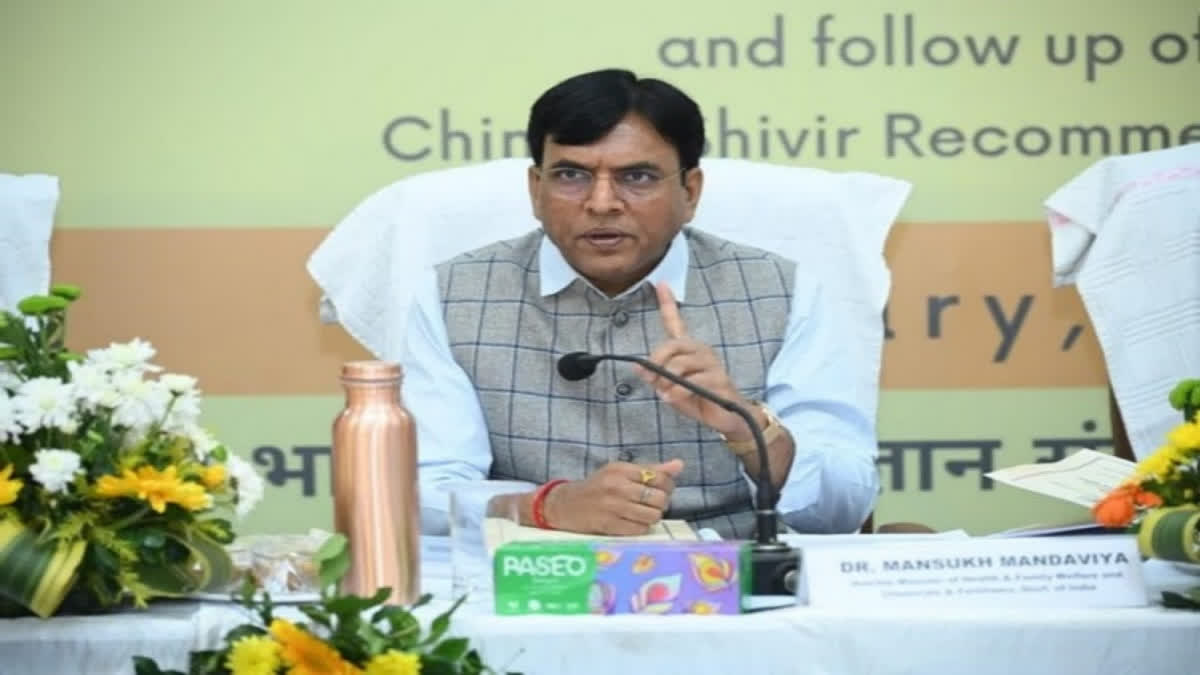New Delhi: The Union Health Ministry on Tuesday said that the Central Drugs Standard Control Organisation (CDSCO) and State Licensing Authority (SLA) issued stop production orders in 40 cases and cancellation and suspension of product licences in 66 cases after cough syrups manufactured by different companies found adulterated.
“Central Drugs Standard Control Organization (CDSCO), along with SLAs, conducted risk-based inspections of 162 pharmaceutical firms and based on findings, show cause notices have been issued in 143 cases. So far, a stop production order has been issued in 40 cases, cancellation and suspension of product/section licences in 66 cases, issuance of warning letter in 21 cases and in one case, the FIR has been registered and three persons have been arrested as per the provisions of the Drugs Rules, 1945,” said Union Health Minister Mansukh Mandaviya in a written reply in the Lok Sabha.
He was responding to a query raised by Congress MP Vivek Rankha on the steps taken by the Government of India in the aftermath of hundreds of deaths of infants reported worldwide linked to cough syrups manufactured in the country. Mandaviya further said that the Directorate General of Foreign Trade under the Ministry of Commerce & Industry has issued a notification (No. 06/2023) on May 22 this year for amendment in the export policy of cough syrups, making it compulsory for cough syrup manufacturers to get a certificate of analysis from a government-approved laboratory before exporting their products with effect from June 1.
Also read: Locals clueless about Haryana factory producing syrups blamed for child deaths abroad
“Accordingly, more than 900 such cough syrup samples have been analysed and Certificate of Analysis (CoA) released as of date,” he informed. The Minister said that the manufacturing, sale and distribution of drugs in the country are regulated under the provisions of the Drugs & Cosmetics Act, 1940 and Rules, 1945.
“The regulatory control over the manufacture, sale and distribution of drugs in the country is exercised through a system of licensing and inspection by the State Licensing Authorities (SLAs) appointed by the respective State governments. Manufacturers are required to comply with the conditions of Licence granted under the said Act and Rules to manufacture any drugs for sale and distribution in the country,” Mandaviya stated.
In cases concerning the quality or safety of drugs when reported, the matter is taken up with the concerned SLA in order to take necessary action under the provisions of the Drugs and Cosmetics Act 1940 and its Rules. The SLAs are legally empowered to take action against violation of any conditions of such licenses including prosecution in appropriate Court of law, Mandaviya said.



